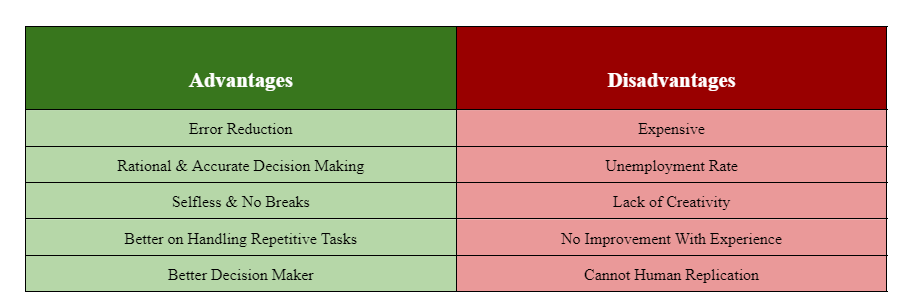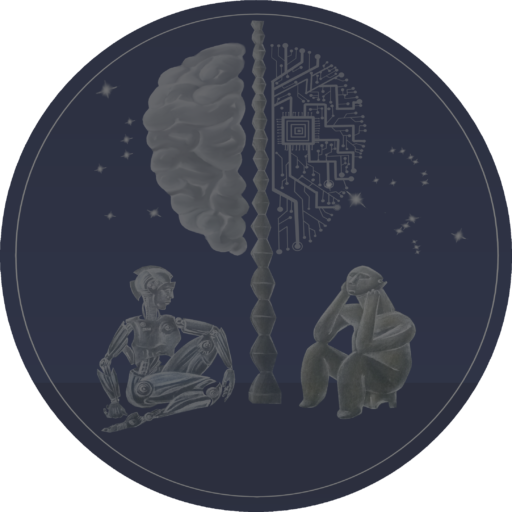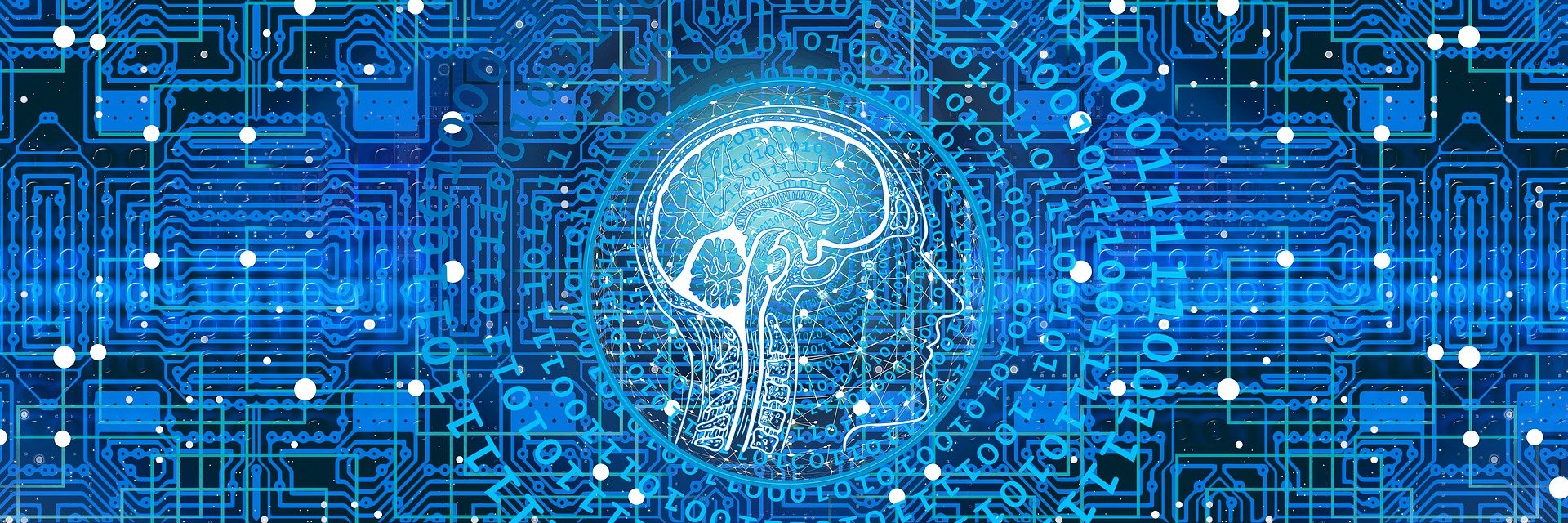Artificial Intelligence is the ability of a computer program to learn and think. Everything can be considered Artificial intelligence if it involves a program doing something that we would normally think would rely on the intelligence of a human. [1]
When we say “Artificial Intelligence” we can also understand “some intelligence created artificially”. It is the science and engineering of creating intelligent machines that makes it significant. The simulation of human intelligence methods by machines that are mainly computer systems includes learning the acquisition rules and information for using it [2].
And we all know, intelligence is not an absolute state of a thing, with a static value. There can exist, of course, less intelligent or more intelligent. A consequence of less intelligence can generate even new concepts – such as Artificial Stupidity [3]. But one thing is clear – Artificial Intelligence does not necessarily mean something Very Intelligent, or the opposite. It is more complex than that (and that is the purpose of these introductory articles of this series) and it is the subject of an entire series of articles. Intelligence, whether natural or artificial can have different degrees on a given scale.
It is also widely known that anything in excess is dangerous to anyone. And so is the case with AI, especially type 2, but not only. Currently, the technology is not advanced enough, so we can rather discuss hypothetically how dangerous is or can be AI.
Instead, in this article, we are going to discuss some of the advantages and disadvantages of Artificial Intelligence, as it is nowadays.
Let’s start with a summary of the most important aspects commonly recognized on the market:

With all the trends around Artificial Intelligence – robots, self-driving cars, VR/AR, metaverse etc. – it is easy to presume that AI impacts our lives every day. From the moment we wake up and check our smartphone or smartwatch, to watching another video recommended on YouTube or an ad on a social platform, AI has quickly made its way into our habits.
Now, let’s have a look behind the scenes, to better understand what are the AI’s pros and cons. How it creates impacts directly and indirectly.
Advantages
Let’s take the advantages first. As illustrated previously some of the most important are:
- Error Reduction
- Rational & Accurate Decision Making
- Selfless & No Breaks
- Better on Handling Repetitive Tasks
- Better Decision Maker
Error reduction
The phrase “human error” was born because humans make mistakes from time to time. Computers, however, do not make these mistakes if they are programmed properly. With Artificial intelligence, the decisions are taken from the previously gathered information applying a certain set of algorithms. So errors are reduced and the chance of reaching accuracy with a greater degree of precision is a possibility. Example: In Weather Forecasting using AI they have reduced the majority of human error. [3]
The advantage of using artificial intelligence is that it helps us reduce errors and increase the chances of reaching higher accuracy with a greater degree of precision [4]. Let’s take the hypothetical example of an intelligent robot that is fed with information due to the rate of data creation, during its existence. This type of machine may be the most resistant in nature and that can help them endure outer space or an unfriendly atmosphere. It would basically adapt or acclimatize to the environment. So it cannot be altered unwillingly or cannot get easily destroyed in hostile conditions. In classic software development, such scenarios required very clearly defined product requirements that predict in advance each potential context – but addressing these issues with efficient solutions like AI engines, can be neglected.
Rational and accurate decision making
Right decisions in the software realm can be taken at work rationally, but when working with humans, emotions come along. When artificial engines are used, there is no distraction at all; they don’t have any emotional side and they think purely logical, so emotions are not associated with machines. And so, the mood doesn’t affect their coherence, which makes them highly effective.
Advanced organizations have digital assistants that help them to interact with the users and save the need for human resources to analyze and make decisions. A machine with no emotions makes it sometimes more efficient to make the right decisions faster. A good example of this is AI in healthcare: integrating AI tools in the healthcare domain have improved the efficiency of treatments and minimizing the risk of false diagnosis.
Selfless and no breaks
In contrast to humans, machines do not need any breaks. They can be programmed for long spans of time and can continuously run efficiently without getting distracted, bored, tired or irritated. It is one of the major benefits of using machines for continuous and repetitive tasks instead of humans, as they need to rest from time to time in order to be performant. In the case of machines, their productivity is not affected by any external factor and they do not mind working on tasks they do enjoy.
Better on Handling Repetitive Tasks
Repeated jobs are tiresome or monotonous by nature. They can be easily handled with the help of AI engines, and don’t require much intelligence between processes. Machine intelligence can handle parallel tasks that may harm the humans involved in it. Their parameters, speed and time can be customized based on the computation complexity required.
For example, if a human plays a computer game or runs any computer-controlled robot, it means that he was actually interacting with an artificial intelligence algorithm. In computer games, the computer is our opponent. Machine Intelligence outlines the game movement in response to our movements.
Better Decision Maker
Decision making remains one of the ultimate tests for leaders in organisations. Even experienced leaders who have a track record of decision making, at some point, made drastically poor decisions that shook their reputation and it was said that AI promises a native transformation of the organization. Leaders are particularly interested to know if this will make it easier for them or not. While a lot of them are agitated, some leaders don’t think the process of decision making should be made more accessible as their capabilities to make sound decisions without complex technology is the power base of the prominence as good leaders. For making the process easier, AI is quite unpromising for decision-makers, as they’ll be required to input judgment in the machine predictions. As the real impact remains to be seen, there are ways in which AI is set to affect business decision making inevitably.
Using data mining and machine learning concepts, many businesses are already using predictive analytics to make better decisions that allow them to anticipate events by looking at a data set and trying to accurately guess what will happen at a certain future moment. The variation is that while data mining involves merely identifying patterns in large data sets, in machine learning, machines are designed to learn from the data and also built to react to it by themselves.
When making complex decisions, executives typically need to look at a set of different factors. When there’s too much data to be considered, the decision-maker could be overwhelmed, leading to bad decisions. On the contrary, a machine can easily handle multiple inputs without exhaustion or confusion. All that’s needed is a set of instructions and programs that guide the machine to use probability and suggest or implement the most logical decision. [5]
AI might not necessarily make the process easier. It’s going to significantly contribute to streamlining decisions for better processes, and an agile future organization.
Disadvantages
As I previously illustrated, some important disadvantages of AI are:
- Expensive
- Unemployment Rate
- Lack of Creativity
- No Improvement With Experience
- Cannot Human Replication
Adoption of AI is an investment that may be expensive
Creating and establishing artificial intelligence requires investments because of the complex nature of machines and their high repair and maintenance costs. Software programs need frequent upgrades to cater to the needs of the changing environment, as there is a need for the machines to become more and more intelligent every day. [6] And in the case of severe breakdowns, the procedure to recover lost code and reinstate the system might also require huge time and costs.
Unemployment
Replacing humans with machines can lead to large scale unemployment. Humans can unnecessarily be highly dependent on machines if the use of AI becomes popular. They may lose their creative power and become lazy.
Also, if humans start thinking in a disruptive way, they can create disasters by using machines. AI on the wrong hand is a serious threat to humankind in general, as that could lead to mass destruction, misinformation and constant fear of machines taking over or substituting humans.
Based on such scenarios, the Association for the Advancement of Artificial Intelligence [7] has two objectives:
- developing and advancing the science of AI
- educating about the responsible usage of AI
Identifying and studying the risk of AI is a very important duty and as part of this, programming errors or cyber-attacks need trustworthy and careful research. Technical companies and the industry need to focus more than usual on the quality of the software when it comes to AI.
Everything that has been created is the continuous result of artificial intelligence and artificial intelligence augments and empowers human intelligence. So as long as we are effective in keeping the technology beneficial, we will be able to help this human civilization.
No creativity
AI systems are not built for creative pieces of work. They can help humans to create and design something, but still can’t compete with the human brain or the originality of a creative human mind.
Their creativity is restricted to the creative skills of the developers who define the technical specifications and program or command them.
Numerous artificial intelligence projects appear to prove that machines are able to create elaborate works of art that match those that are created by humans. Each demonstration of the creative progress of AI relies on new advances in the field of machine learning that allows computer programs to compute things in a manner similar to the human brain.
But, humans are highly emotional and sensitive beings. They hear, see, feel and think, they correlate all of these with emotions and their thoughts are accompanied by their feelings, which completely lack machines.
The implicit natural abilities of the human brain cannot be yet replicated by machines. At least not with the current knowledge we have regarding about human brain – that makes harder the mission of synthesizing an artificial brain.
No improvement with experience
Artificial Intelligence cannot be developed with experience, unlike humans, and may lead to wear and tear with time. They generally store a lot of data but, the way it can be accessed and used is very different from human intelligence. [8]
These machines are unable to adapt their responses to changing circumstances. Machines can adjust their responses according to simple environments. AI systems are generally built for their nature of work where the input doesn’t change or the changes are predictable. So if there was some change in the input, the systems need to be reassessed, rebuilt and retrained.
Machines can’t judge what is wrong or what is right because they are incapable yet of understanding the concept of legal or ethical.
They are programmed for specific and predefined situations and can’t make decisions in cases where they encounter an unfamiliar situation.
There is no sense of human touch or affection. They fail to differentiate between an inefficient individual and a hard-working individual.
No human replication
It is beyond any uncertainty that machines operate much more rigorously in contrast to any human being. But even then, it is functionally impossible to replace humans with AI systems, at least in the near future, as we cannot build human intelligence in the machines, the same way nature gifted to us. So, no matter how smart a machine can become, it can never replace a human in terms of wisdom or emotions.
We might get terrified at the idea of being replaced by machines, but honestly, it is still a far fetched notion. Machines are rational but don’t have any emotions or moral values. They lack the ability to bond with human beings, which is a critical attribute needed to manage a team of humans. [9]
Machines cannot make game-changing decisions outside of a given context. If they encounter a situation unfamiliar to them, they need to break down or perform incorrectly in such situations. They can store a lot of data, but the technique of retrieving or processing information from them is quite an inelegant process, which is way more complicated when compared to human intelligence.
In order to prepare this article, I studied the lectures from GlobalTechCouncil. They served me as a great source of inspiration and guidance through the process of discovering and understanding AI technologies.
Below, you can also find some valuable materials on this topic.
References
[1] https://towardsdatascience.com/advantages-and-disadvantages-of-artificial-intelligence-182a5ef6588c
[2] https://angelinakhazaryan.wordpress.com/2021/01/16/artificial-intelligence-pros-and-cons
[3] https://www.thinkautomation.com/automation-ethics/do-we-need-to-worry-about-artificial-stupidity
[4] https://www.educba.com/advantages-of-artificial-intelligence
[5] https://www.newcruitment.ch/tech-news/artificial-intelligence-can-help-leaders-make-better-decisions-faster
[6] https://www.proschoolonline.com/blog/what-are-the-disadvantages-of-ai
[7] https://www.aaai.org/
[8] https://www.carbon60global.com/blog/advantages-and-disadvantages-of-ai
[9] https://www.proschoolonline.com/blog/what-are-the-disadvantages-of-ai
Also, I can recommend as a good lecture a paper authored by the European Parliament – The ethics of artificial intelligence: Issues and initiatives


![AI#6 Knowledge representation in AI [EN]](https://neuroaugmentare.ro/wp-content/uploads/2022/07/artificial-intelligence-4389372_1920-218x150.jpeg)
![AI#5 Problem solving and Searching [EN]](https://neuroaugmentare.ro/wp-content/uploads/2022/05/artificial-intelligence-5866644_1920-218x150.jpeg)
![AI#4 Challenges of AI [EN]](https://neuroaugmentare.ro/wp-content/uploads/2022/03/technology-7111800_1920-218x150.jpg)
![AI#2 Intelligent Agents [EN]](https://neuroaugmentare.ro/wp-content/uploads/2022/02/ai-6767497_1920-218x150.jpg)
![AI#1 What is Artificial Intelligence? [EN]](https://neuroaugmentare.ro/wp-content/uploads/2022/02/robot-hand-finger-ai-background-technology-graphics-218x150.jpeg)
